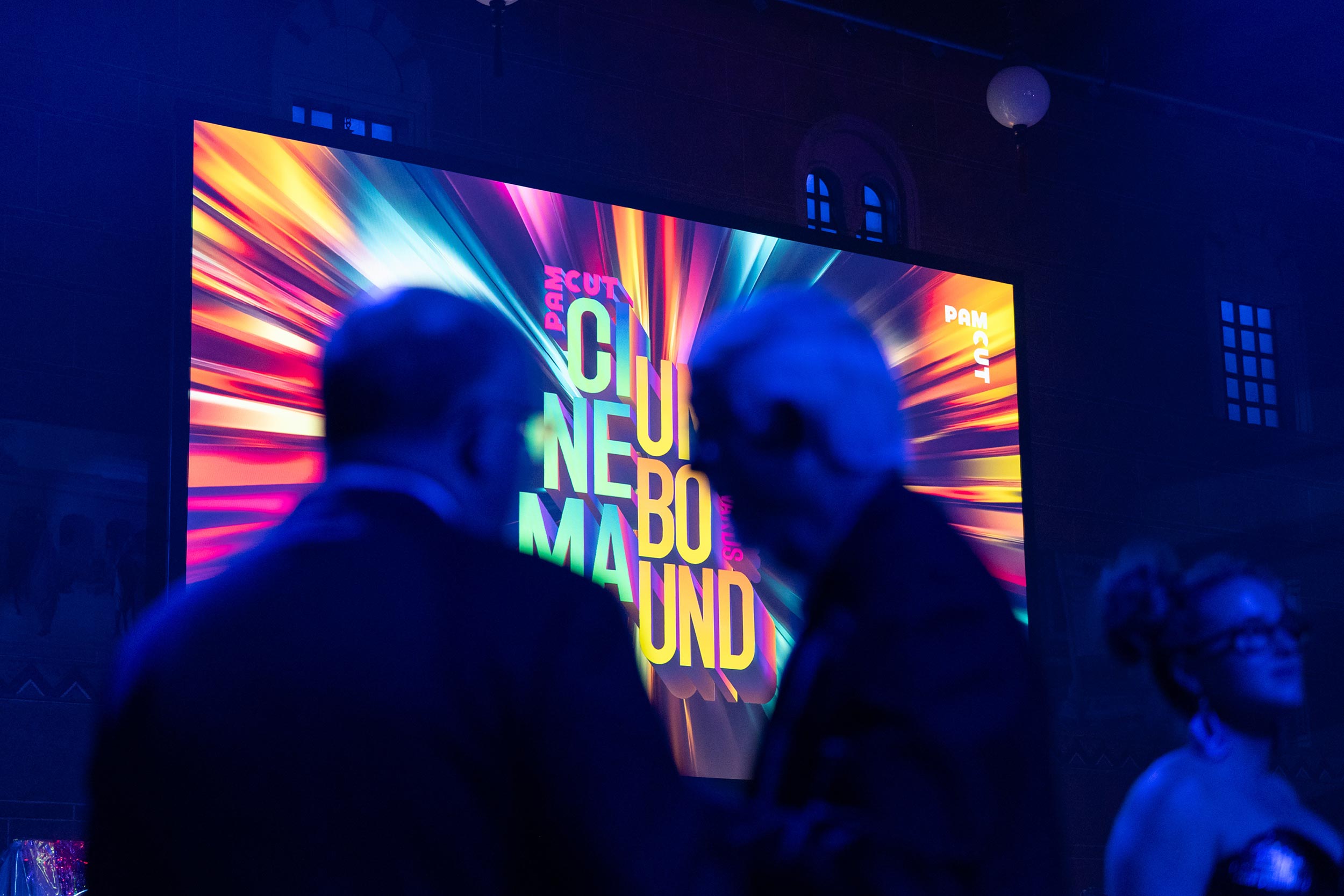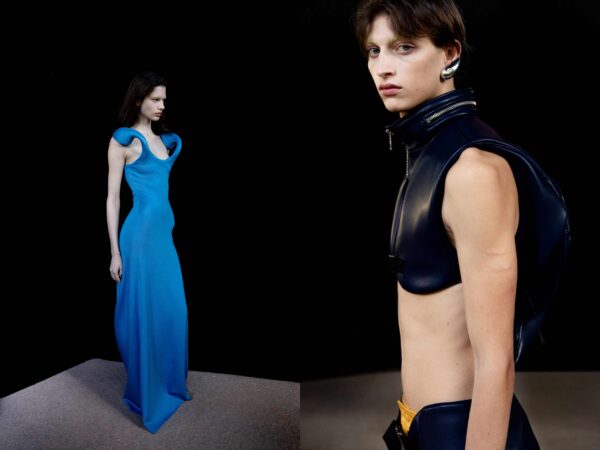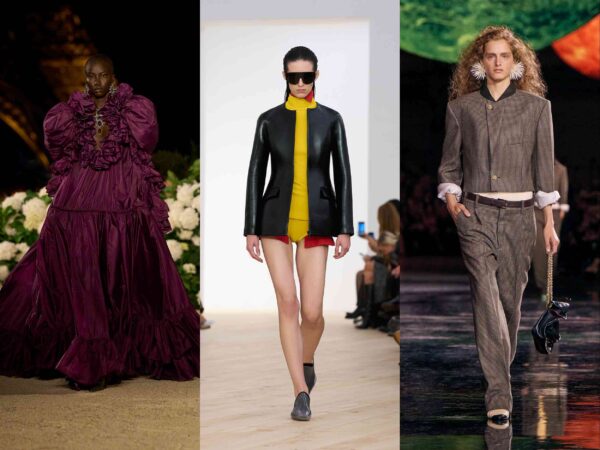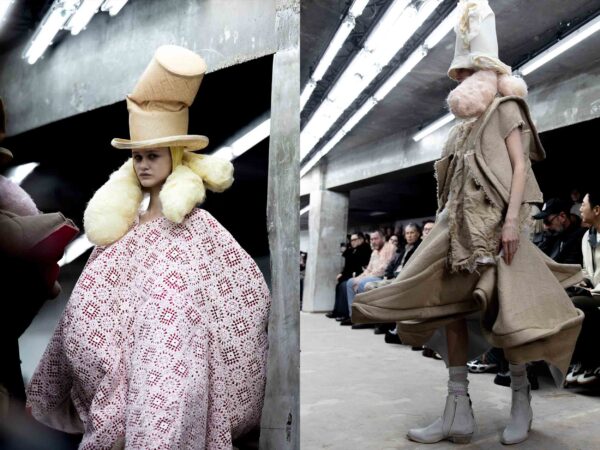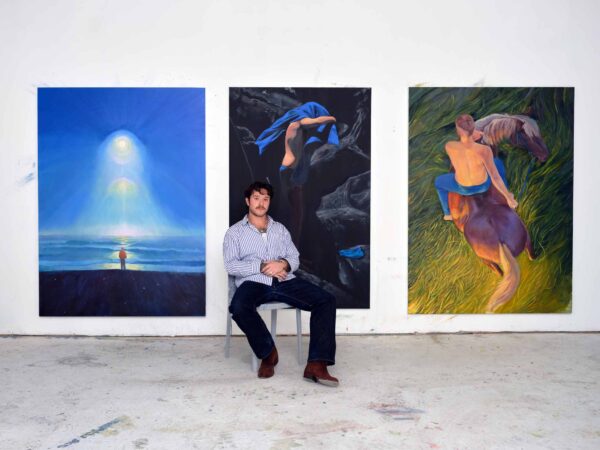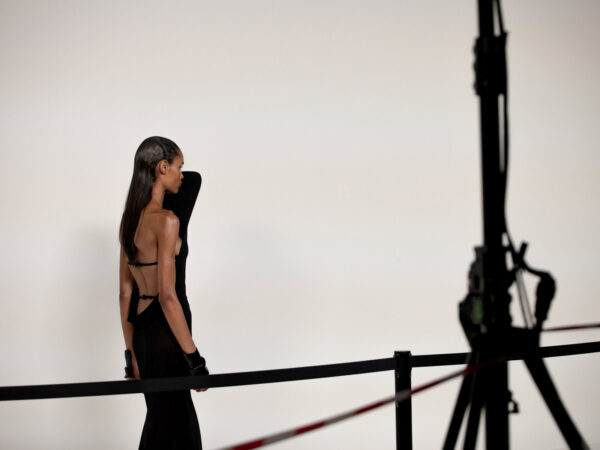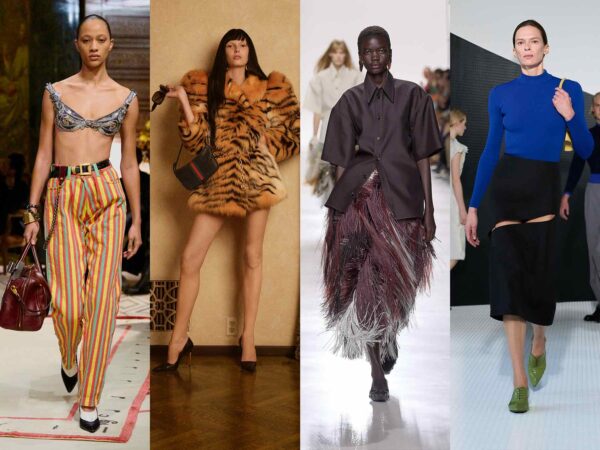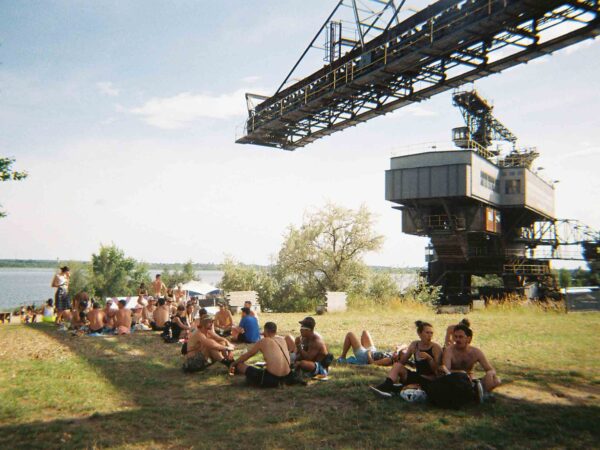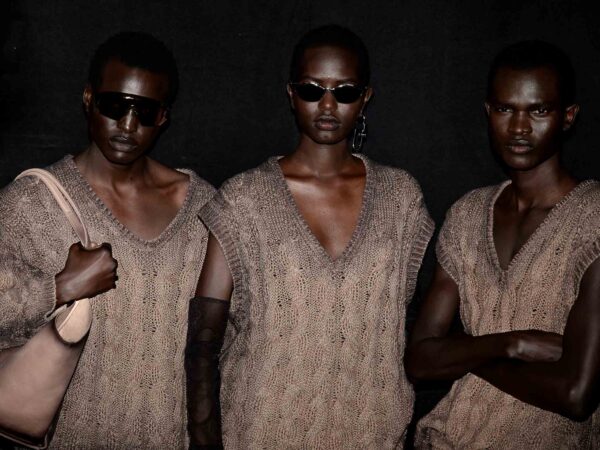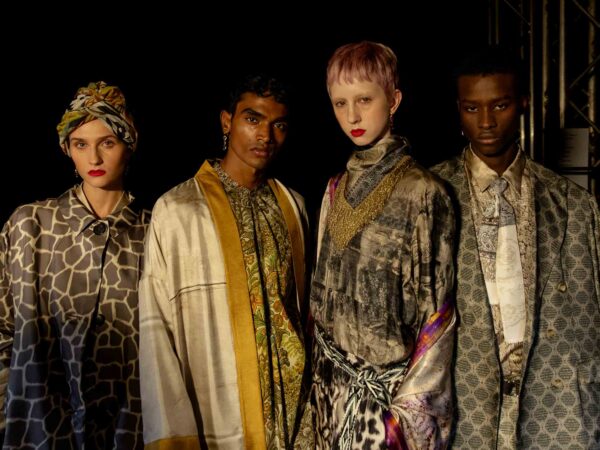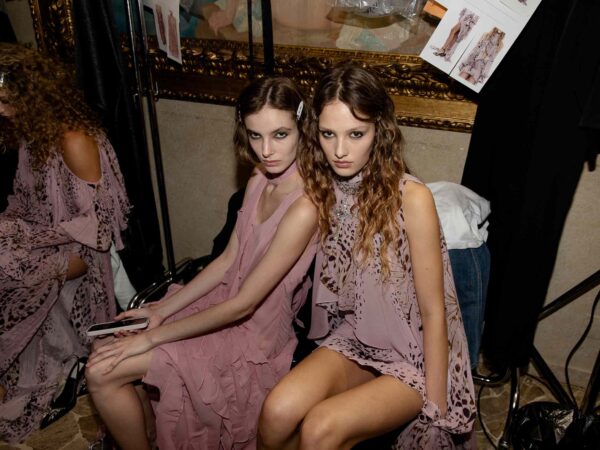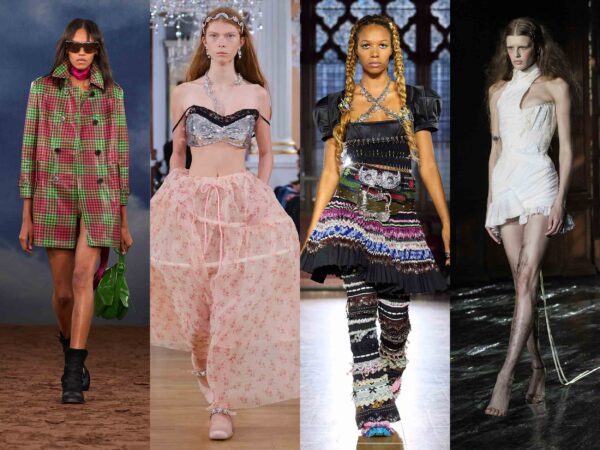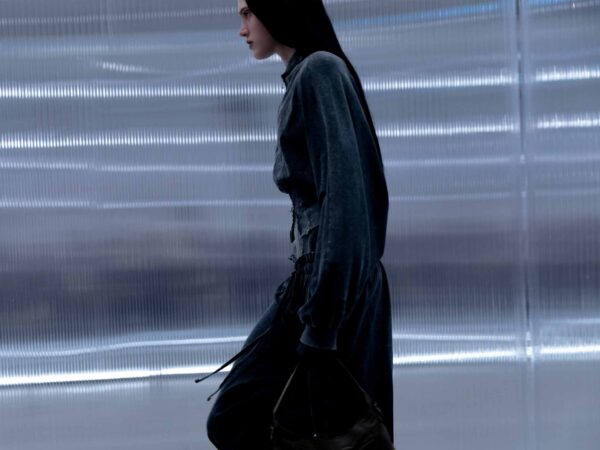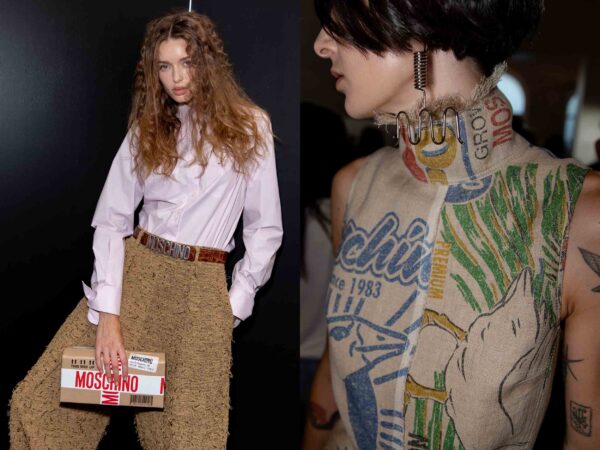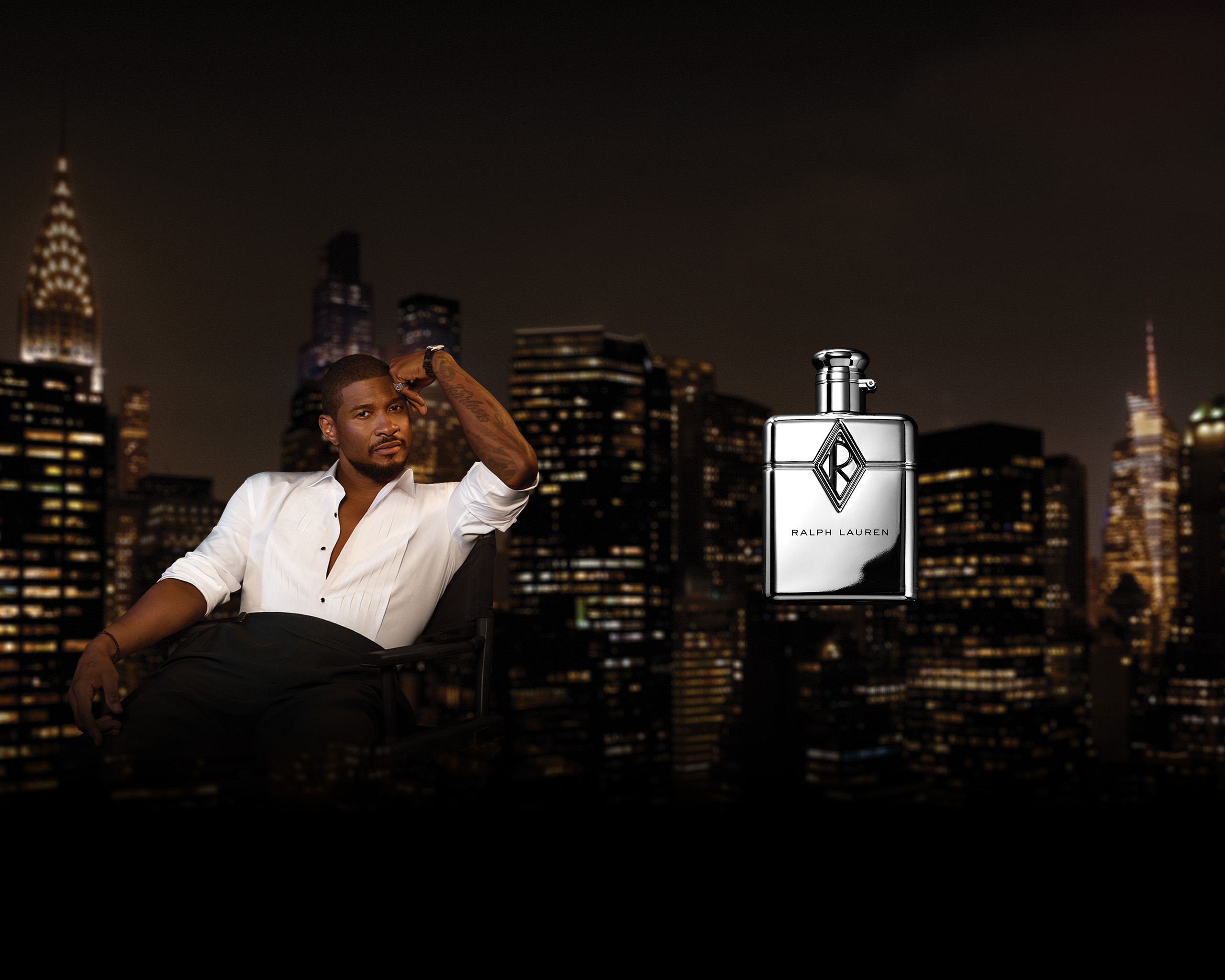From Nicholas Cage cosplay to zoning lectures with David Byrne, PAM CUT redefines what it means to gather around moving images
Standing inside the Tomorrow Theater, a hundred-year old building in Southeast Portland, I ask film producer Amy Dotson what exactly cinema could be. “Much more than a flat thing on a screen,” she says. “And here, that means everything.” The theater’s latest life, as an artist’s haven under PAM CUT, Portland Art Museum’s Center for an Untold Tomorrow, which Dotson directs, began only a year and a half ago.
Before that: a couple years of sibylline vacancy, preceded by a seedy stint as Portland’s last live porn palace, complete with scattered mattresses, a cardboard projector, and a $10 special that got you two Cokes, popcorn, and rubbers. Before that, a 1920s vaudeville house, its crying rooms once echoing grief over Rudolph Valentino’s death. The strangest thing about the theater, Dotson tells me, isn’t its hidden dungeon or bathroom mirrors sourced from AutoZone, or even that it’s the only cinema in America licensed to screen Pee-Wee’s Christmas Special every year. “The weirdest part,” she says, smiling at the empty rows of seats, “is that a lot of the time we have to ask people to sit down.”
There are none of the stiff, whispered rules typical of theaters, no stern ushers shushing from the aisles. Instead, artists have full creative freedom to curate programming that skews unexpected. Past events have included Miranda July convincing an audience member to swap outfits, casually stepping into a stranger’s three-piece denim suit mid-event. Or Titus Kaphar arriving with a plan, only to tear up his flashcards, and trust the night’s instincts instead. David Byrne even managed to merge a discussion about affordable housing in Portland with reminiscences of the Talking Heads, likely marking the first-ever zoning lecture accompanied by memories of 1980s New Wave.
“The ceremony doubled as both a party and a provocation, a reminder that PAM CUT isn’t just championing new voices, but rethinking the whole cinematic apparatus”
“The throughline is bringing disparate people and things together,” Dotson says, as we hover by the upstairs bathroom—once part of the old crying room, and perhaps the last vestige of the theater’s vaudeville past—before being gently ushered out. A husband had rented the theater for a private screening to celebrate his 20th wedding anniversary, showing a film he’d made of their years traveling together. “On paper, it doesn’t look like these two groups or interests should go together. But the bottom line is that we’re people, and when we get together, surprising connections happen.”
Appropriately, the following night at the Cinema Unbound Awards, Portland’s singularly aberrant spirit again stole the spotlight, hosting an eclectic mix of groundbreaking artists and visionaries, amid local lore and international buzz. This year’s honorees—artist Marco Brambilla, comedian and actor Sarah Sherman, James Beard Award-winning chef Earl Ninsom, musician Colin Meloy, and artist Carson Ellis—embody the kind of creative misrule that feels quintessentially Portland. Here, you’re just as likely to sit next to a drag queen, a taxidermist, and a software engineer with a theremin side hustle as you are a filmmaker. It’s a city that’s made an identity out of its lack of one—less a cohesive narrative than a kind of beautifully stubborn refusal to collapse into cliché.
The ceremony doubled as both a party and a provocation, a reminder that PAM CUT isn’t just championing new voices, but rethinking the whole cinematic apparatus: who gets to make work, how it reaches people, and what event counts as a “film” anymore. That ethos will extend into physical space later this year with the launch of the Blair New Media Gallery, a sprawling new wing of the museum devoted to expanded cinema and digital experimentation. Brambilla will christen the space this fall with his delirious, hyper-saturated video collage “Heaven’s Gate,” a fitting portal into the museum’s next dimension.
The night kicked off with an absurdist performance by in-house artist Julia Calabrese, who climbed onto a stage dressed as Nicholas Cage in Moonstruck (1987), appearing in several strange pre-filmed interstitials on the screen. Violet Hex, in full oracle regalia, served as the evening’s surreal MC, guiding the audience through the night’s dreamlike unfolding.
Dotson followed with brief remarks, dressed in a deconstructed trash-bag couture piece by local artist Byron Beck, a gesture that spoke to her DIY spirit, before calling Adam Abdalla to present the first award of the night to Brambilla, who recounted his early connection to Portland shooting one of Nike’s first art-forward commercials at age 22. Next came Sherman, better known to SNL audiences as Sarah Squirm, introduced by her longtime hero Lance Bangs. “This is the first and only award I’ve ever received in my life,” she said through laughter and tears, before launching into an off-kilter roast. “Portland has always had the freakiest audiences I’ve ever experienced, but not every city is created equal. Some shows can be punishing, no offense if you’re from Phoenix.” By the time Mac Barnett and Jon Klassen ascended to present Meloy and Ellis with their awards, the room had launched into a debate about polycules, fueled by the pair’s tongue-in-cheek admission that they’d misread the invitation and thought they were being invited to join one. Ninsom, the night’s final honoree, who also curated the evening’s dinner menu, offered an ode to the act of cooking for others, and the emotional endurance it requires—not unlike any other artform.
In Portland, there’s something for everyone. It’s a city driven by cross-pollination: of high and low, experimental and homespun, irreverent and sincere. As Dotson puts it, “You want to try it? Try it. You want to get on the floor? Get on the floor. You want to go big? Go big.” The future of cinema, she believes, isn’t just about returning to theaters. It’s about connection. At PAM CUT and Tomorrow Theater, that connection is expansive, porous and proudly strange. Or, as she says: “We’re just trying to explode the notion of what we can’t be.”


